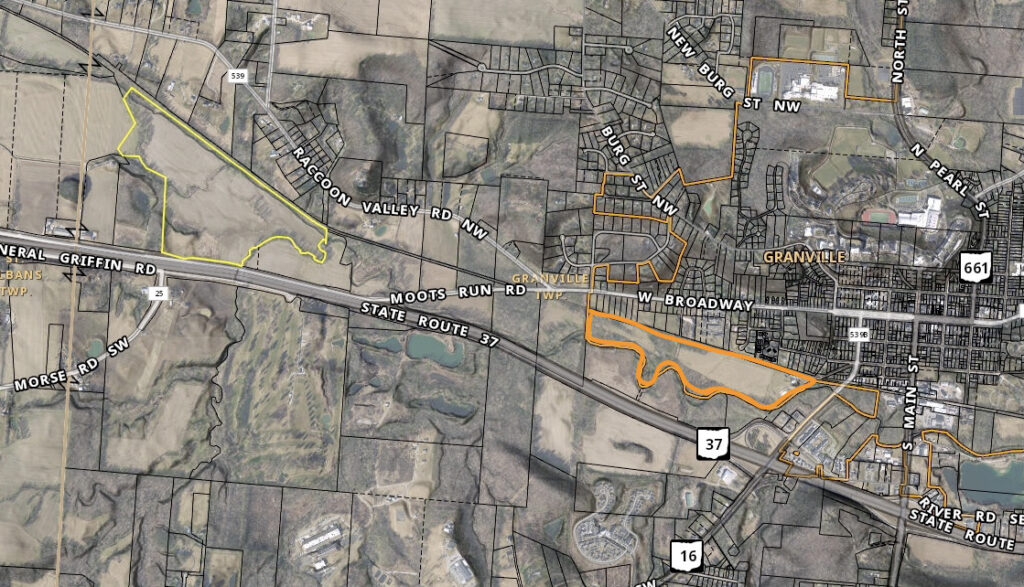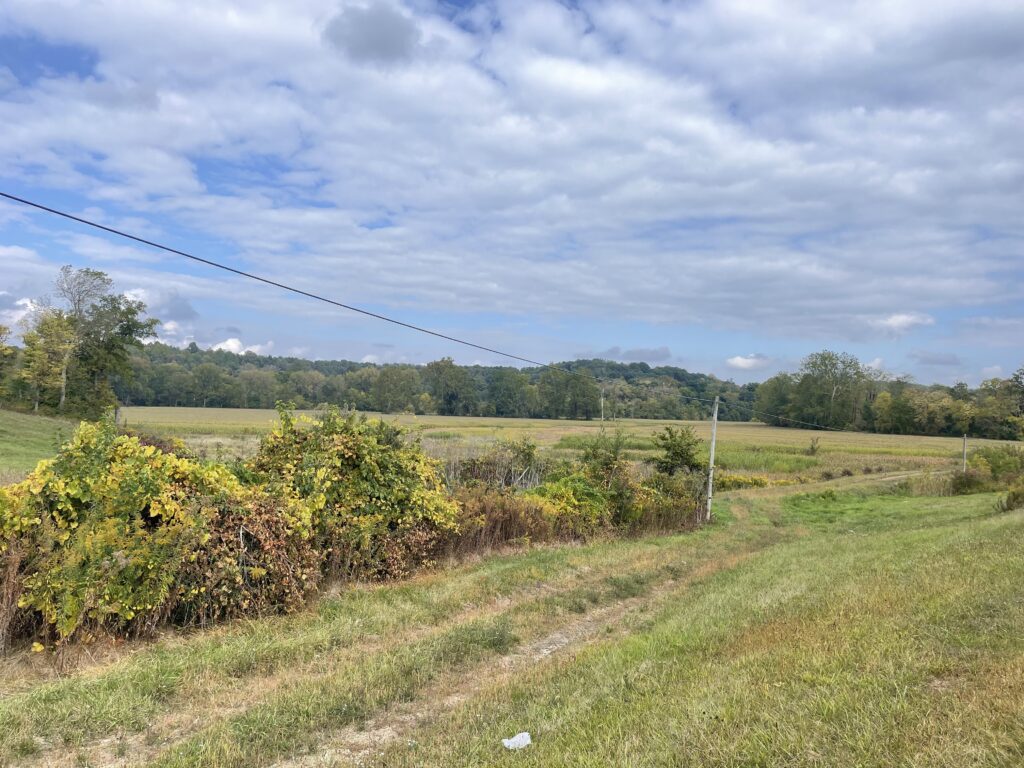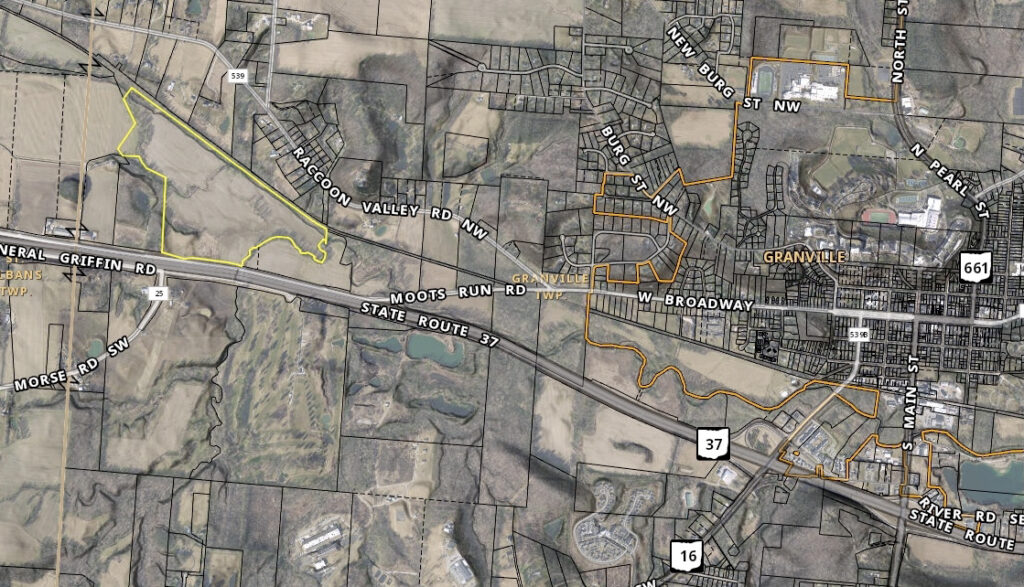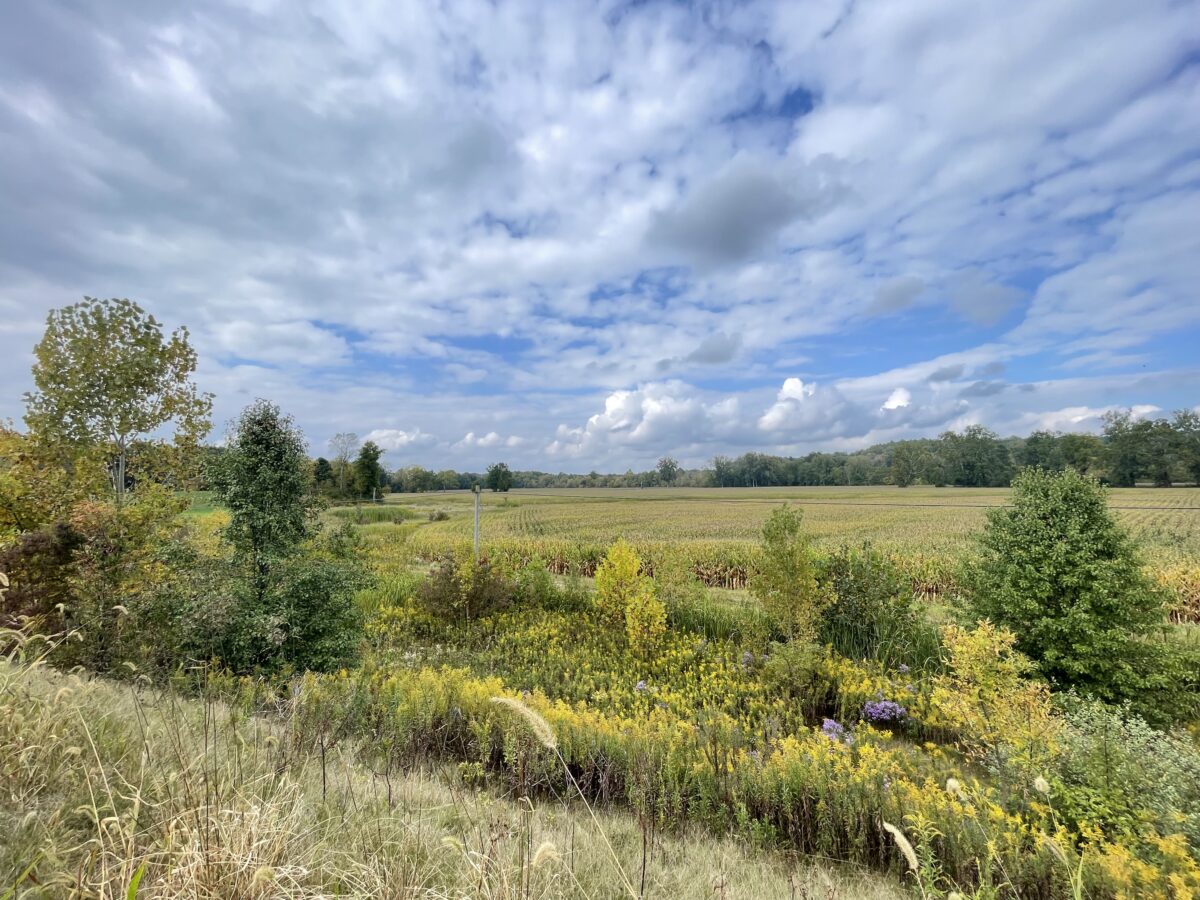Officials in Granville and Granville Township are sounding the alarm after The New Albany Company and the City of New Albany asked Licking County officials last week for permits to drill wells and potentially pump millions of gallons of water a day from Granville Township to New Albany.
The wells would be drilled on land formerly owned by a Granville Township trustee and near the well field from which the Village of Granville draws drinking water for its residents and those in nearby Alexandria.

“We’re going to do everything we can do to stop this, within the law, and everything we can do to establish a regional water and sewer partnership,” said Granville Mayor Melissa Hartfield, referring to the recent conversations by Granville, Liberty, Monroe and St. Albans townships, the city of Johnstown and villages of Alexandria and Granville about establishing a regional partnership for water and sewer service.
“I’m sure they are trying to hustle this up because they read in the papers that we’re working on a regional water and sewer district for the people who live here, not just for the New Albany Business Park,” Hartfield said.
Some of the technology companies in New Albany, including the $20 billion Intel computer-chip factory complex being built in western Licking County, use large amounts of water. Intel has said it will need 1.5 million gallons a day when it starts manufacturing in 2025.
“People and food come before computer chips,” Hartfield said.
In an emailed statement from Jennifer Chrysler, New Albany Director of Community Development, and Tom Rubey, Development Director for The New Albany Company, they said that “since Intel was announced in January 2022, there have been numerous discussions with our partners in Licking County to explore water solutions for future growth related to Intel and ancillary development occurring in the region.”

Part of those discussions, they said in the statement, was about “a 106-acre parcel in western Granville Township that New Albany Company secured to serve the Intel development as a potential water source location.”
“A permit application has been filed by the City of New Albany with grant funding provided by the State of Ohio for preliminary testing on this parcel for water that might serve the area,” the statement said.
In what one official described as a preliminary meeting, New Albany officials met Friday with Licking County officials about permits to work in a floodplain and for stormwater runoff before drilling several wells that each could produce 1 million gallons of water a day.
The New Albany Company’s MBJ Holdings LLC bought 106.83 acres for $2,670,000 on Sept. 19, according to the Licking County Auditor’s website. The company purchased the land along old Rt. 161, now known as Moots Run Road, from Daniel D. and Jennifer L. VanNess, who bought the same property for $1.3 million on Jan. 8, 2021.
Mr. VanNess is a farmer and a Granville Township trustee.
Hartfield said she is beyond disappointed that a township trustee would put the community in this situation. “I just feel sick over it,” she said, adding that the Village of Granville offered to buy the land from the VanNesses after village officials learned that it was in contract.

Mr. VanNess did not return calls from The Reporting Project.
The next Granville Township Trustees meeting will be at 7 p.m. at the Township Service Complex, 1554 Columbus Road, Granville.
Licking County officials said that New Albany is interested in drilling test wells on the Granville Township site and at another site on Tharp Road, on the southeast side of Alexandria, owned by James Geiger – the same site where controversial concrete and asphalt mixing plants have been proposed.
Hartfield said that Granville will encourage the county to reject permits for drilling so close to the village well field.
She and Granville Village Manager Herb Koehler, and Granville Township Trustee Bryn Bird, all expressed frustration about learning second-hand about New Albany’s interest in drilling in Granville Township.
“I’m so infuriated by this,” Hartfield said. “We’re reaching out to everyone right now because we learned second-hand that this is going on. It’s very back-door.”
Koehler said that Granville has four wells and pumps about 1.1 million gallons of water a day, with some seasonal spikes, and that it has the capacity to treat 2 million gallons a day for drinking water.
He’s concerned about what might happen to the supply in the Raccoon Creek watershed and aquifer if water is extracted there and moved west to the Scioto River watershed.
“You’re looking at a potential well field three miles away that could draw three times the amount of water we use in a day,” Koehler said. “Will it do permanent damage to an aquifer we depend on?”
Matthew Jungers, associate professor of Earth and Environmental Studies at Denison University, said that without more details, it’s difficult to answer that question precisely, but in general, a big increase in pumping could have a negative effect.
The water Granville pumps from the aquifer stays within the watershed. It’s used, treated and returned to the same watershed, Jungers said, so it’s in essence a closed system.
“If, indeed, they’re talking about taking out 3 million gallons per day, and it were staying in the watershed, it would be similar to what Granville does,” he said, adding, however, that drawing such a large volume of water still might negatively affect private wells at farms and country homes in the area.
“But if they are going to export the water to another watershed, that’s a bit more of an unknown,” he said. “If I were the people considering the new wells, I’d want them to put a finer point on where the water is going.”
Bird said that a first wave of concern about local control over resources and development came a year ago when the Licking County Commissioners approved expansion of the Southwest Licking Water and Sewer District service area. It grew from about 8,800 acres in the southwestern part of the county to more than 18,000 acres stretching across the western half of the county.
The commissioners did not seek input from officials in the villages and townships in that area prior to their vote, she said.
Then, in April, the Southwest Licking Community Water and Sewer District (SWLCWSD) bought nearly 100 acres in St. Albans Township for the potential construction of water and wastewater treatment facilities. The effluent from a wastewater plant in that area would flow into Raccoon Creek and the same aquifer from which Granville draws its water.
“The county should bring all of these people together,” Bird said. “It feels like there’s a lot of politics involved, and no one wants to get in the middle of it. But there’d be a lot less politics if this were coordinated.”
She said that two weeks before SWLCWSD bought the land in St. Albans Township, officials told her “there’s no plan to buy that land.”
“That creates distrust,” she said. “Everyone is out for themselves.”
“Who will never come to the table with any community in Licking County is The New Albany Company,” Bird said. “They have yet to talk with communities about a coordinated effort.”
Licking County Commissioner Tim Bubb said that New Albany Company representatives talk with county officials when they need to do so, but “they’re a private company,” and they aren’t obligated to share more than they want to share.
He said that Bird raised an interesting point about the county getting local officials from across Licking County together to discuss cooperation and coordination of development plans. He said he hopes that a comprehensive study of water and sewer facilities and service areas across the county, funded by the county and due out in the coming month, will help get everyone on the same page.
Also, the Mid-Ohio Regional Planning Commission is working to create a water-service dispute board for this region, Bird said. Such boards of appeals are “everywhere else in the state except central Ohio,” she said.
Long-term, Bird said, Ohio needs tighter regulation of water resources.
“I was born and raised in Colorado, so I’m really tuned into this,” she said, describing how she grew up with water rationing.
“Ohio has been blessed with abundant water resources,” she said. “Now, the whole world knows that, and everyone wants a piece of it. If the state doesn’t step in and do something to manage this, we’re going to lose our precious resources.”
Alan Miller writes for TheReportingProject.org, the nonprofit news organization of Denison University’s Journalism Program, which is funded in part by the Mellon Foundation.

